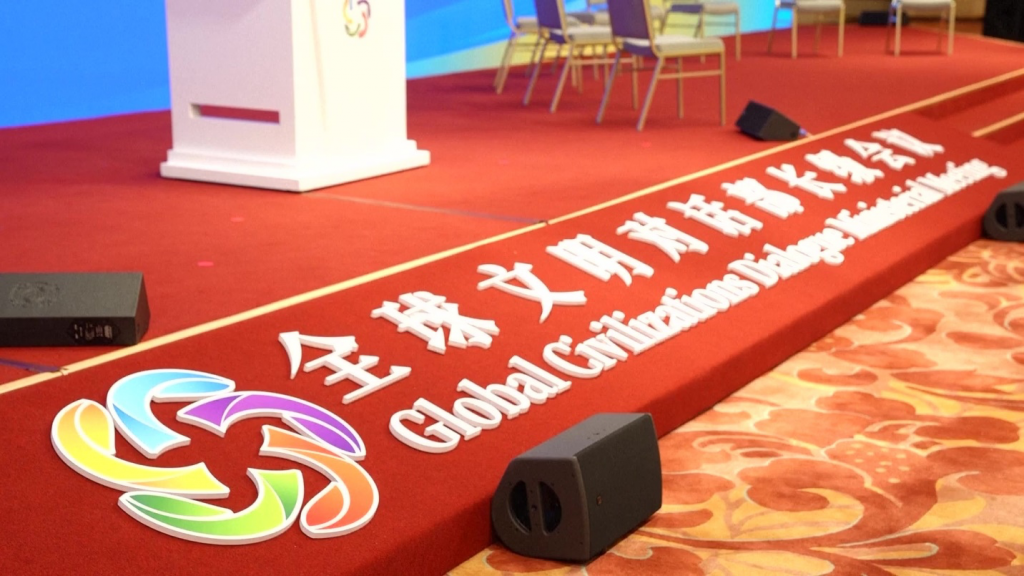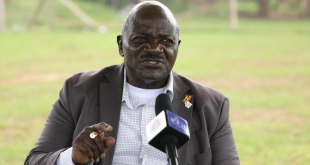By Staff writer

The Global Civilizations Dialogue ministerial meeting, held in Beijing on July 10–11, 2025, came at a critical juncture. With the world beset by geopolitical tension, ideological polarization, and a retrenchment from globalization, the event—backed by over 600 delegates from around 140 countries—served as a concerted effort to reaffirm the vital role of intercultural exchange in preserving peace and fostering global progress. In the midst of escalating conflicts and growing protectionist tendencies, United Nations Secretary-General António Guterres warned that “dialogue is essential in a world fractured by conflict, intolerance and misinformation”.
China’s President Xi Jinping framed the meeting as a tangible extension of the Global Civilization Initiative (GCI), which he unveiled in March 2023. The GCI is rooted in principles of equality, mutual learning, dialogue, and inclusiveness among civilizations, countering hegemonic imposition of values in favor of respect for diverse modernization pathways . The Beijing Declaration, adopted at the meeting, calls for cooperation across governments, academia, media, and civil society to deepen cultural exchange, bolster institutional frameworks, and create a global cooperation network for civilizations.
As part of the GCI’s rollout, China launched an action plan featuring more than 100 programs. These include the establishment of a global civilizations research institute, a cultural-exchange fund, visa waivers for students, scholarships, and youth exchange initiatives. At the ministerial, international figures—including former prime ministers, think tank leaders, and UNESCO representatives—emphasized that drawing on diverse civilizational wisdom enriches global solidarity, innovation, and shared prosperity.
For Africa, the GCI builds on a foundation of sustained China-Africa engagement—economic, diplomatic, and cultural. Through the Forum on China-Africa Cooperation (FOCAC), China has become Africa’s largest trading partner, with bilateral trade reaching $282 billion in 2023. Over the latest triennial FOCAC summit, Xi pledged about $50–$51 billion in loans, grants, and investments to support infrastructure, agriculture, manufacturing, and security, while also pushing measures to ease trade balance concerns and open Chinese markets to goods from low-income countries.
Complementing economics, China’s soft-power investments in Africa are vast. From scholarships and vocational training to Confucius Institutes and agricultural-technology centers, Beijing is strengthening people-to-people ties. In 2018 alone, China hosted more than 80,000 African students—surpassing Western scholarship offerings. Specialized cooperation programs—like “Luban Workshops” and medical missions—reinforce local skills and public welfare. These efforts align seamlessly with the GCI’s mission: fostering mutual cultural learning and knowledge exchange.
Africa stands to benefit significantly from the GCI framework, which emphasizes equal respect for national development models and civilizational dignity. By institutionalizing dialogue, China offers a platform where African voices shape cultural, educational, and developmental pathways in their own context. Trade concessions, market access, and development funding are paired with intercultural respect. This approach responds directly to African leaders’ long-standing calls during Beijing visits to reshape the relationship from extractive patterns toward equitable partnerships. It also dovetails with Africa’s aspirations for technological capacity building in sectors like processing of minerals and agricultural productivity.
Globally, the GCI reflects a broader realignment in China’s diplomacy: transitioning from a narrow economic agenda to a multidimensional narrative fostering a multipolar, culturally pluralist world order. After spending over US $1 trillion on the Belt and Road Initiative, China is now pursuing complementary frameworks—the GCI, Global Development Initiative, and Global Security Initiative—to address critiques of environmental harm and uneven outcomes. By promoting civilizational diversity and resisting universalist imposition, the GCI counters Western-centric value systems and enhances soft power outreach.
For the Global South—which includes much of Africa, Latin America, and emerging Asia—the GCI offers a fresh prism through which to seek partnerships defined not only by resources or infrastructure, but by shared dialogue, cultural dignity, and developmental self-determination. This approach fosters regional solidarity and provides alternatives to Western philanthropic models focused on democracy and human rights benchmarks .
Critics argue the GCI may mask China’s strategic ambitions or sidestep sensitive issues like debt sustainability, governance norms, or human rights. But proponents see it as a creative lever for reframing global governance around mutual respect and cooperation, rather than ideological contestation.
The Beijing ministerial crystallizes this shift. It brought the GCI from concept to action, with commitments spanning cultural institutes, academic networks, scholarships, visa policies, and at least 50 development cooperation projects over five years. Ultimately, China envisions a global tapestry where civilizations engage in continuous conversation, co-creating a stable and inclusive world order.
Whether the GCI leads to lasting transformation depends on follow-through. Will China, African states, the UN, UNESCO, regional bodies, universities, NGOs, media houses, and youth movements turn these declarations into real, equitable partnerships? The stakes are high. But if GCI’s architecture can deliver on its promise, it may reframe diplomatic discourse: civilizational interplay—not just economics, geopolitics, or ideology—could become the core of 21st-century diplomacy.
In that light, the Beijing ministerial was more than a moment—it laid the scaffolding of a global civilizational alliance inclusive of Africa and others, aiming to ensure not just that civilizations coexist, but that they flourish through mutual learning, respect, and shared innovation.
 Africa -China Review Africa -China Cooperation and Transformation
Africa -China Review Africa -China Cooperation and Transformation
